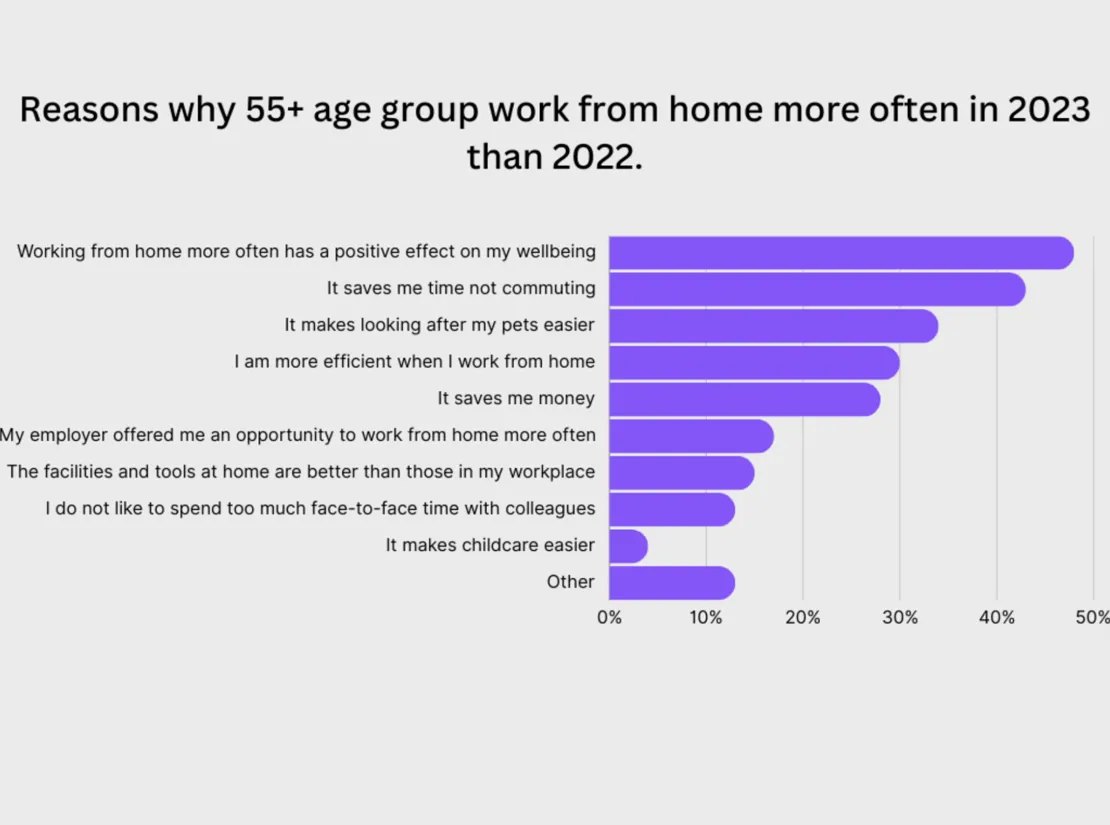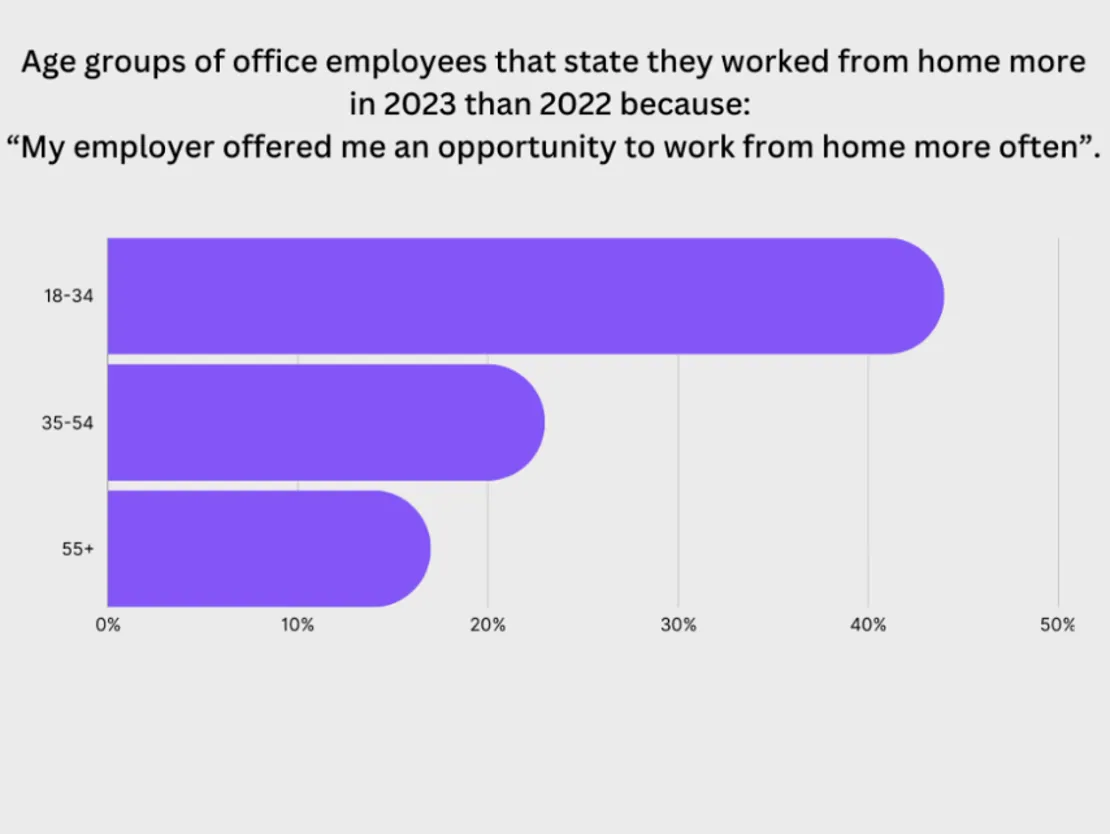Only 17% of over 55s get the option to work from home, despite reporting the highest level of wellbeing
Sunday 7th January 2024

- Among those in the 55+ age group who worked from home, a substantial 48% reported a positive impact on their wellbeing. This contrasts markedly with younger age groups, where only 27% of 18-34-year-olds and 34% of 35-54-year-olds reported similar benefits.
- The majority of the 55+ age group cited "working from home more often has a positive effect on my wellbeing" as the primary reason for their preference for remote work.
- Despite these reported benefits, only 17% of those aged 55+ had the option to work from home more often due to their employer's offer, a figure significantly lower than the 44% for the 18-34 age group and 23% for the 35-54 age group.
48% of the over-55s who worked from home experienced a positive impact on their wellbeing
The survey reveals that 48% of the over-55s who worked from home experienced a positive impact on their wellbeing, a contrast to just 27% of 18-34-year-olds and 34% of 35-54-year-olds. This data underscores the particular importance of remote working arrangements for older employees in enhancing their wellbeing.
55+ age group cited “working from home more often has a positive effect on my wellbeing” as their primary reason for remote work
Not only does the survey show that 48% of the 55+ age group feel working from home has a positive effect on wellbeing, it is their primary reason for remote working. This underscores the significance of offering more remote work options to the older workforce.

Just 17% aged 55+ were offered frequent work-from-home options
Despite the clear benefits, only 17% of those aged 55+ were offered more frequent work-from-home options by their employers, compared to 44% of younger counterparts aged 18-34, and 23% of those aged 35-54. This indicates a notable gap in the provision of remote work opportunities across different age groups.

John Atkinson, Head of Commercial and Strategy at Novuna Business Cash Flow, notes, "The opportunity to work from home is crucial for the wellbeing of our older workers. It's essential for organisations to consider this need and ensure their remote work policies are inclusive for all age groups."
Role-related factors: Understanding work nature differences across generations
Differences in remote work opportunities across age groups may stem from the distinct nature of their roles. Younger workers often pursue digital roles, well-suited for remote environments, whereas older workers, typically in senior positions, may require office presence for effective leadership and management.
Despite these role-related variations, the significant well-being benefits that older workers gain from remote working cannot be overlooked.
The value of flexibility: Older workers' appreciation for remote work opportunities
Having often spent the majority of their careers in traditional office settings, the older generation may particularly appreciate the flexibility and change that remote work offers, in contrast to younger workers who may have had exposure to such flexibility earlier in their careers.
This sense of gratitude and newfound work-life balance for older employees reinforces the need for employers to thoughtfully consider extending remote work opportunities to all age groups, ensuring a holistic approach to employee well-being and job satisfaction.
About the research
Field: 31st October 2023 - 3rd November 2023
Sample: 2000 UK adults - 1,210 of which were office workers
Weighting: Weighted to be nationally representative
Results based on the following survey question: “You mentioned that you work from home more than you did last year. Which, if any, of the below reasons explain why? Select all that apply.” All options that could be selected are shown in the graph entitled “Reasons why 55+ age group work from home more often in 2023 than 2022”.



